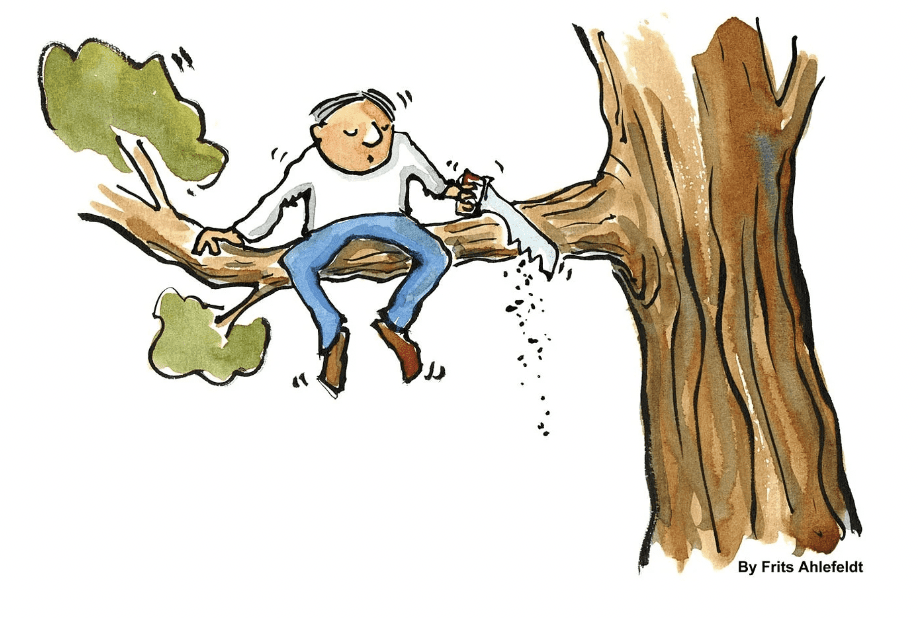Stop Self-Sabotaging When on the Brink of Success
Some people always seem to complete their projects and reach their goals. Others have a pattern of quitting or even self-sabotaging on the brink of success. Most of us set at least some goals and have ways to stay on track. Accountability partners and systems of reward and punishment might propel us over the finish line. However, if your pattern is one of self-sabotaging that happens unconsciously, accessing your unconscious may reveal insights that can help you break the pattern at last.
Maybe you consciously want to make a career change or achieve a less dramatic goal, such as exhibiting your artwork publicly. You might find yourself not following through on pursuing your aim and then wondering why. Part of you might genuinely wish to meet the goal. However, there may be a part of you that feels it’s better to keep a dream alive, so you take no steps to achieve it. Or you do take some steps, but you quit too soon. This pattern prevents you from facing potential failure. And the pattern might be unconscious.
Deep down, you might fear that if you continue pursuing your goal, your hoped-for “someday” when success arrives might not come: You might have trouble finding a job you like or convincing a gallery to let you show your artwork. The fear of failure and disappointment can be a hidden obstacle. It can seem much safer to simply give up, perhaps even at the last possible minute, when you’re about to achieve success.
Regardless of what you consciously think, believe, and feel, if you keep stopping short of the finish line, engaging your unconscious to gain information can help you move past the block and break your old habit of self-sabotage in the home stretch.
Within each of us is an inner wise self who has answers to our questions and insights that will help us to shatter old patterns. You can enter a state of openness to hearing from that part of yourself–or with the self that never seems to be able to commit to marriage, a career change, or whatever it is that you say you want for yourself. Then, you can dialogue with this wise inner self to learn as much as you can about your pattern of self-sabotage.
A simple way to have a dialogue with the self that knows what is keeping you from achieving your dreams is to get into a meditative, calm state and simply pose three questions:
“What’s blocking me from achieving my goal?”
“What do I have to let go of to achieve it?”
“What do I have to bring in to achieve it?”
You might have to release your fantasy of effortlessly achieving your goal. You might also have to release your fear of failure or your fear that you don’t have what it takes to succeed. Maybe you have to release a fixed mindset that has you believing you need certain talents to make your dream a reality when actually what you need is to have a growth mindset. In other words, you need to believe that you can attain the necessary skills and resources to overcome any lack of natural talent.
What you might need to bring in to achieve your goal is greater comfort with uncertainty and failure. You might need to bring in a growth mindset (believing in the power of perseverance) but also focus and determination when skill-building is challenging and difficult.
Your dialogue with your inner self could go beyond the three questions I have posed here. You might ask for clarification so you better understand the answers your unconscious offers you. An inner dialogue like this might make all the difference in your ability to follow through with your conscious desire to bring about personal transformation and reach your goals.
Whatever form the answers come in–as thoughts, images, feelings, or words–allow yourself to feel sad, disappointed, or even angry at yourself as you face the truths your unconscious reveals. At least you’ll know why you stop when you want to keep going, why you procrastinate and distract yourself, and why you often snatch defeat from the jaws of victory.
A dialogue with your unconscious wisdom could teach you how to stop self-sabotage. You might realize you are okay with occasional failures because you can always create new goals and try different approaches to achieving them.

Shame over self-sabotaging can end when you explore why it happens. If you fear the death of your dream and the sense of purpose it gives you, remember that you can always alter your dreams and create new ones. We often learn more from our failures than our successes. If you can forgive yourself for self-sabotaging on the brink of success, you may find it easier to accept your failures and enjoy your successes. When you do meet a goal, this break in your old pattern might feel uncomfortable initially. However, you might find you feel much more satisfied than you were back when you were self-sabotaging on the brink of success.
So, while there’s no reason to feel ashamed of your self-sabotage, there’s good reason to explore why it is happening and what you can do to change your pattern. Spend some time dialoguing with your wise inner self and see if it doesn’t lead to greater satisfaction.
A version of this article appeared in Elephant Journal.
To learn more about dialoguing and other ways to work with the hidden wisdom in your unconscious, check out my books, including my newest book, Go Within to Change Your Life.
